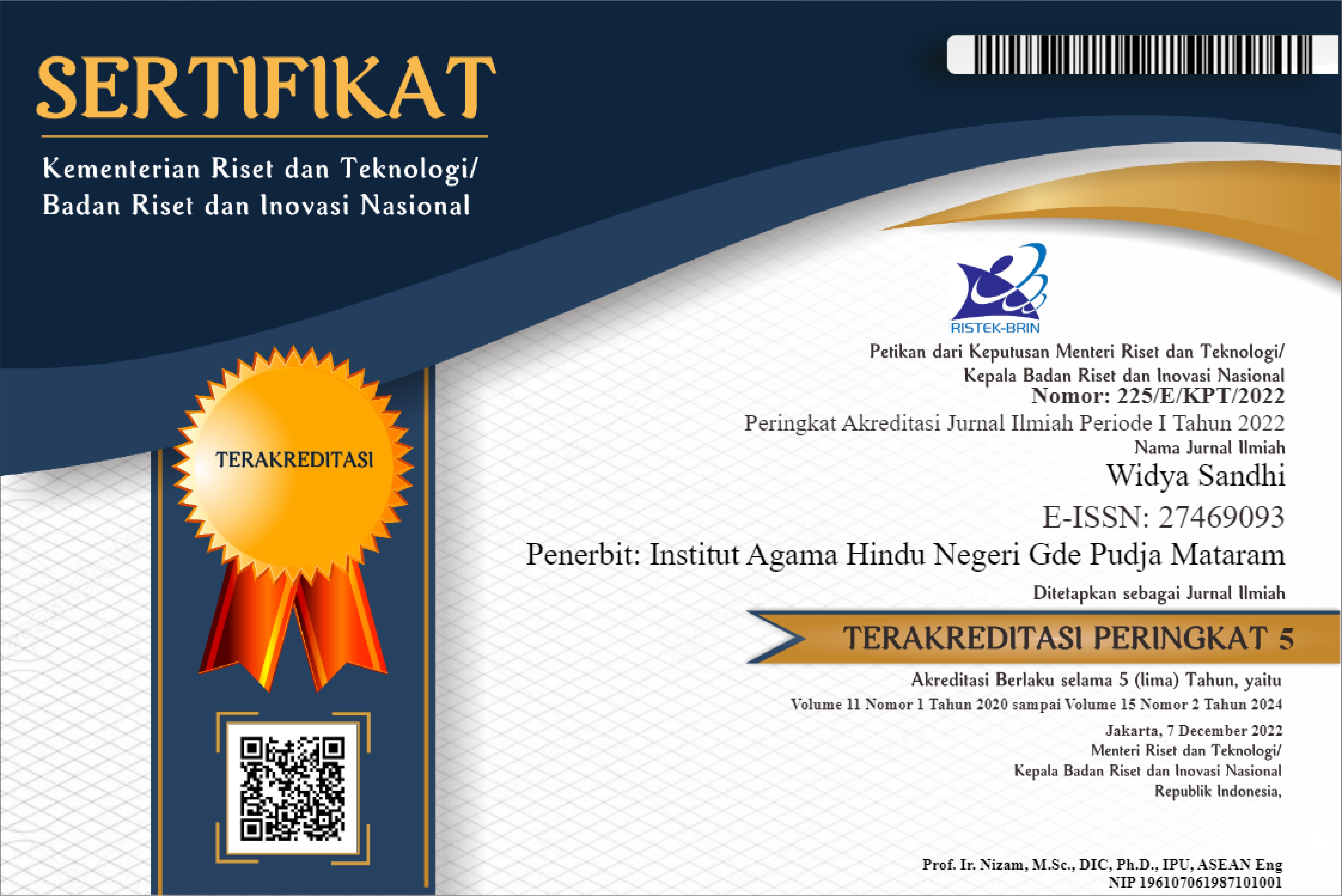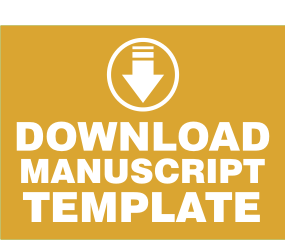KEARIFAN LOKAL MARAPU MENDUKUNG HINDU NUSANTARA
Abstract
West Sumba people with trust in Marapu who were given various titles such as Magholo Marawi, Mori, and so on were believed to be in control of the inner life of the believers. On this basis, the adherents of the Marapu faith are convinced that there is a power above him, who has power over his life. Also convinced of the existence of sin due to actions and rituals of peace, convinced of the existence of human spirits, other spirits, and natural souls. For the good life of the Marapu believers, they strive to always harmonize their lives with Marapu and other spirits and natural souls by carrying out rituals which they call cultural activities.
The concept of harmonization between humans is also taught in the Marapu belief conveyed by adherents of that belief from generation to generation through word of mouth without written sources. The harmony of the relationship is reflected in cultural activities, among others, in the implementation of marriage rituals, pregnancy, and birth rituals and the equal relationship between adherents of the faith and between the residents of the Marapu faiths and the Rato .
Harmonization of human relations with nature by the Marapu belief community is felt to be very important so that they continue to strive to maintain harmony in the relationship. The harmonization with nature is like harmony with water or rivers or lakes or seas, harmony with forests, harmony with the earth and mountains. The behavior of harmonization is carried out through traditional Merapu ritual activities such as betel nut betel offerings accompanied by slaughter of animals delivered by the original Sumba language prayer Such is the paper that can be conveyed, the conclusion Marapu supports Hindu Nusantara, which is adopted by the Persada Nusantara from Sabang to Merauke, especially the Sumba people, most of whom still believe in the Marapu local authenticity that is preserved and its sustainability.
References
Dherana, Tjokorde Raka, 1975. Pokok-Pokok Organisasi Kemasyarakatan Adat Bali. Denpasar: Fakultas Hukum dan Pengetahuan Masyarakat Universitas Udayana
Koentjaraningrat, tt. MasyarakaDesa di Indonesia Masa ini. Jakarta: Yayasan Badan Penerbit Fakultas Ekonomi Universitas Indonesia
Koentjaraningrat, 1996. Pengantar Antropologi I. Jakarta: PT. Rineka Cipta
Poerwadarminta.W.J.S. 2007. Kamus Umum Bahasa Indonesia Edisi Ketiga. Jakarta Balai Pustaka.
Pudja, 2013. Bhagawad Gita (Pancama Veda). Surabaya. PT. Paramita Surabaya.

This work is licensed under a Creative Commons Attribution-NonCommercial-ShareAlike 4.0 International License.
Authors who publish with this journal agree to the following terms:
- Authors retain copyright and grant the journal right of first publication with the work simultaneously licensed under a Creative Commons Attribution-ShareAlike 4.0 International License. that allows others to share the work with an acknowledgment of the work's authorship and initial publication in this journal.
- Authors are able to enter into separate, additional contractual arrangements for the non-exclusive distribution of the journal's published version of the work (e.g., post it to an institutional repository or publish it in a book), with an acknowledgment of its initial publication in this journal.
- Authors are permitted and encouraged to post their work online (e.g., in institutional repositories or on their website) prior to and during the submission process, as it can lead to productive exchanges, as well as earlier and greater citation of published work (See The Effect of Open Access).






.jpg)




